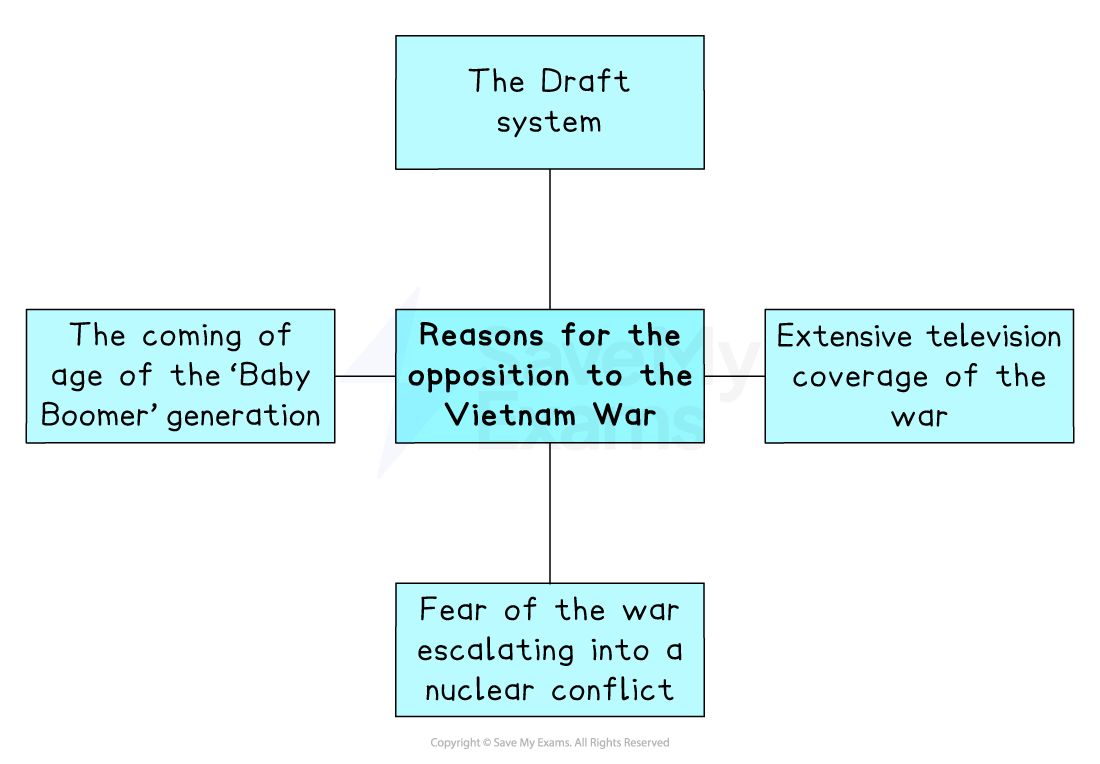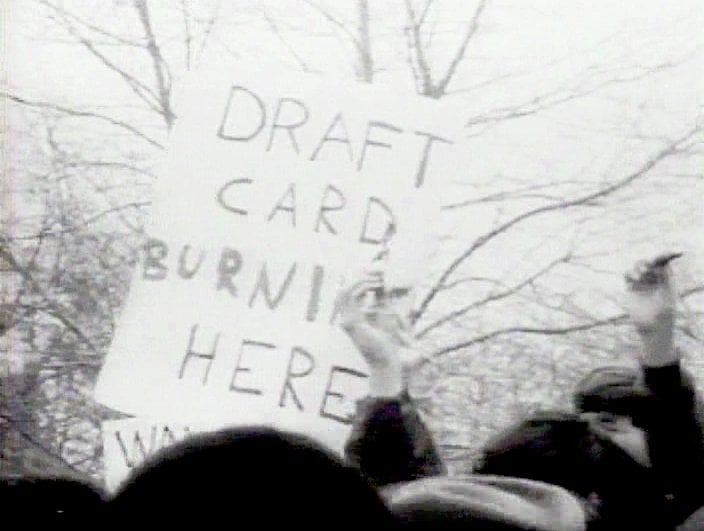Reasons for Opposition to the Vietnam War (Edexcel GCSE History): Revision Note
Exam code: 1HI0
Summary
Support from the public can have an enormous impact on a country’s chances of winning a war - especially in a democracy. Although the American public was initially very supportive of President Lyndon B Johnson’s decision to send US troops into combat in Vietnam, that gradually changed over time. The decision to force people to join the war through the ‘draft system’ and the increased access to television news were both key factors in causing this change.
Initial opposition to the Vietnam War
When President Johnson sent the first US combat troops into action in 1965, around 70% of the American public supported the war
By 1971, around 68% of the American public was against the war
This drop in support and increase in opposition occurred for several reasons:

What was the draft?
The draft was the name given to the system that forced men between the ages of 18-25 to join the military
When it began in 1966, only those who had been convicted of petty crimes and identified as ‘delinquents’ were drafted
From 1969, all men of a suitable age were given a unique number and were drafted based on a randomised lottery
Approximately, 650,000 Americans were drafted into the armed forces during the Vietnam War
Why did people oppose being drafted into the Vietnam War?
People opposed the draft system because it was widely seen to unfairly target the poorest people in American society
Refusing to join up once drafted was a criminal offence so many people faced a choice between prison or going to Vietnam
How did people avoid being drafted into the Vietnam War?
Some men went into hiding and around 30,000 fled to Canada throughout the war
Others turned their refusal to join into a protest by publicly burning their papers or draft cards
Richer people avoided the draft by studying abroad or getting doctors who were family friends to make them medically exempt

Why was the Vietnam War televised?
Television ownership by Americans in the mid-1960s had increased enormously since the 1940s and 150s when the Second World War and the Korean War had been fought
The cameras used by television news crews had also improved significantly and enabled them to move around the war zone and get close to the fighting
The result was the conflict being beamed into people's living rooms daily
How significant was television to the opposition to the Vietnam War?
The Vietnam War has been called the first ‘media war’ because of the amount of influence that TV crews had on people’s opinions
The horrors of the battlefield, which most people had never seen before, were regularly featured on the evening news
It gave people a much better idea of what fighting a war involved and it left many people appalled
Television also caused people to doubt the truth of what they were being told by generals and politicians when it did not match what they were being shown on TV
This led to a breakdown in trust between many members of the public and the government
Worked Example
Give two things you can infer from Source A about the reasons for opposition to the war in Vietnam.
Source A: From a newsletter published in 1969 by a campaign group opposed the Vietnam War. “While bankers and businessmen are making huge profits out of the war, the ordinary working people are made to pay. Young men, who are forced to join the army, pay with their lives. Our friends, brothers and sons are dying. And if dying isn’t enough, ordinary people are also forced to pay more taxes. The Vietcong have won the war but the US government still intends to stay in Vietnam for a long time.” |
(4 marks)
Answer
What I can infer: Some people objected to the Vietnam War because of the draft system and the number of American soldiers that were dying.
Details in the source that tell me this: It states: ‘Young men, who are forced to join the army, pay with their lives.’
What I can infer: Some people objected to the Vietnam War because of the cost.
Details in the source that tell me this: It states that ‘...ordinary people are forced to pay more taxes.’
Examiner Tips and Tricks
People were against the Vietnam War for several different reasons so this is an ideal topic to come up in question 3 on this paper. You could be given two interpretations that give different reasons for opposition to the war. In 3(d), your task is to outline all of the reasons for opposition to the Vietnam War and then reach a reasoned judgement over which you think is the most important and explain why

Unlock more, it's free!
Was this revision note helpful?
